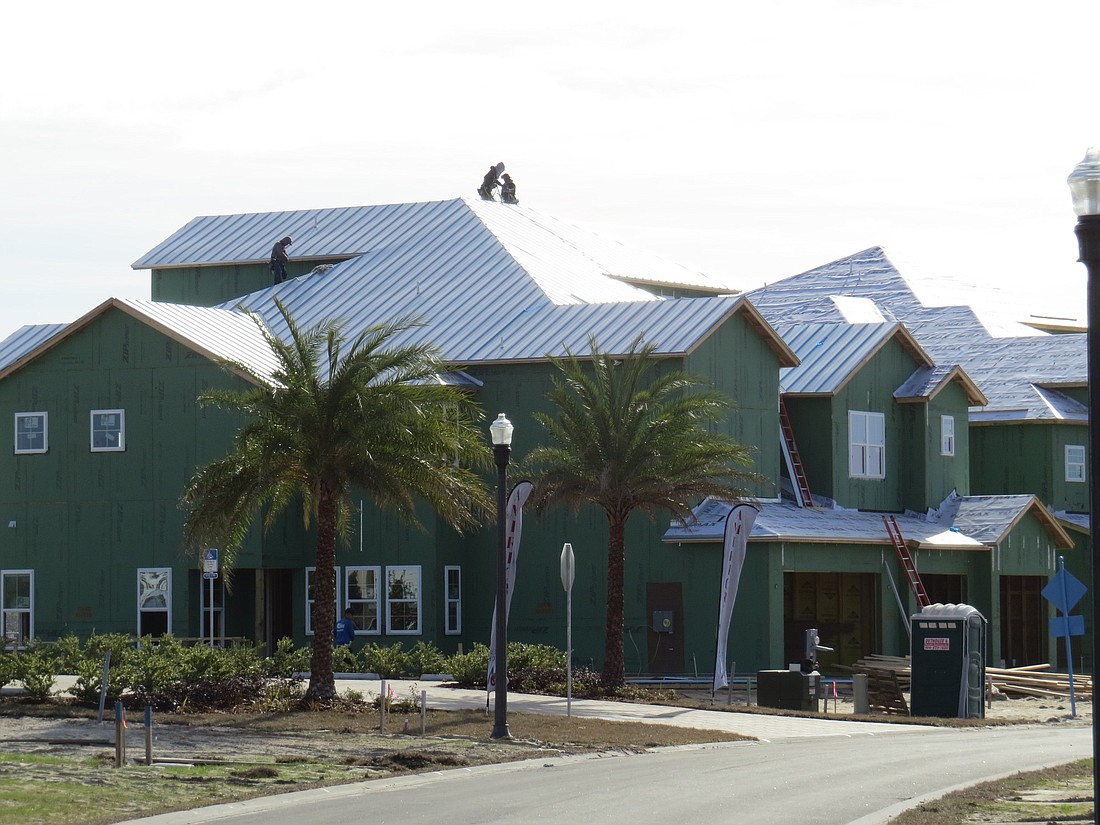
Recent increases in home prices in Jacksonville are among the highest in the nation, according to CoreLogic, a property information, analytics and data-enabled services provider.
According to its Home Price Index for December, Jacksonville prices rose 7.2 percent over December 2016.
This compares with markets such as Los Angeles-Long Beach-Glendale, California (7.8 percent) and Denver-Aurora-Lakewood, Colorado (8.1 percent). It far outpaces Miami-Miami Beach-Kendall at 3.6 percent.
Home prices rose an average of 5.8 percent statewide and 6.6 percent nationally over the past 12 months, according to CoreLogic.
“The number of homes for sale has remained very low,” said Frank Nothaft, chief economist for CoreLogic.
“Job growth lowered the unemployment rate to 4.1 percent by year’s end, the lowest level in 17 years,” he said.
“Rising income and consumer confidence has increased the number of prospective homebuyers. The net result of rising demand and limited for-sale inventory is a continued appreciation in home prices,” he said.
According to the Northeast Florida Association of Realtors December Multiple Listing Service report, the average sales price in the four-county area in December was $261,947, up 12.4 percent over the prior year at $233,096.
“In the past year, our team has seen inventory decrease, causing the demand to increase,” said Christina Welch of The Welch Team, Keller Williams Realty Atlantic Partners Southside.
“We are seeing homes in good shape on the market for less than a day go into multiple offer situations more often than not,” she said. “Buyers need to be prepared to put their best foot forward from the beginning because they may not get a second chance.”
Leading indicators suggest continued upward pressure on home prices as demand continues to outpace supply.
In December, the inventory of available homes was 7,062, down 19.4 percent from 8,763 one year prior. The 2.9-month supply of inventory was down from 3.8 months the prior year, a decline of 23.7 percent.
“Home prices continue to rise as a result of aggressive monetary policy, the economic and jobs recovery and a lack of housing stock,” said Frank Martell, president and CEO of CoreLogic.
“As home prices and the cost of originating loans rise, affordability continues to erode, making it more challenging for both first-time buyers and moderate-income families to buy,” he said. “At this point, we estimate that more than one-third of the 100 largest metropolitan areas are overvalued.”